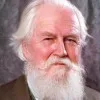Books have another value, to those who have fallen forever and wholly in love with them. There are those who would cheat for them, steal for them, lie for them, even if then they could never show or boast of their treasures to any other creature. Kill for them? It was not impossible.
Ellis Peters (1913-1995) English writer, translator [pseud. of Edith Mary Pargeter, who also wrote under the names John Redfern, Jolyon Carr, Peter Benedict]
The Heretic’s Apprentice, ch. 12 (1990)
(Source)
Quotations about:
collection
Note not all quotations have been tagged, so Search may find additional quotes on this topic.
That’s the beauty of the Web: You can roll around in a stranger’s obsession without having to smell his or her house. You can amscray whenever you want without being rude. The site gets its “hit” and you know more about our species’ diversity.
Penn Jillette (b. 1955) American stage magician, actor, musician, author
“Free Celebrity Nudes!” Penn’s Columns (15 Oct 1997)
(Source)
The plural of anecdote is data.
Raymond Wolfinger (1931-2015) American political scientist and professor
Comment (c. 1969)
(Source)
Notes:
- In a 2004 email to Fred R. Shapiro, editor of The Yale Book of Quotations, Wolfinger wrote: "I said 'The plural of anecdote is data' some time in the 1969-70 academic year while teaching a graduate seminar at Stanford. The occasion was a student's dismissal of a simple factual statement -- by another student or me -- as a mere anecdote. The quotation was my rejoinder. Since then I have missed few opportunities to quote myself."
- The first print appearance is in Roger C. Noll, "The Game of Health Care Regulation," in Richard S. Gordon, ed., Issues in Health Care Regulation (1980): "Most of the evidence is anecdotal. Nevertheless, in the words of a leading political scientist, Raymond Wolfinger, the plural of anecdote is data ...."
Books to the ceiling, books to the sky.
My pile of books are a mile high.
How I love them!
How I need them!
I’ll have a long beard by the time I read them.
Book lovers are thought by unbookish people to be gentle and unworldly, and perhaps a few of them are so. But there are others who will lie and scheme and steal to get books as wildly and unconscionably as the dope-taker in pursuit of his drug. They may not want the books to read immediately, or at all; they want them to possess, to range on their shelves, to have at command. They want books as a Turk is thought to want concubines — not to be hastily deflowered, but to be kept at their master’s call, and enjoyed more often in thought than in reality.







